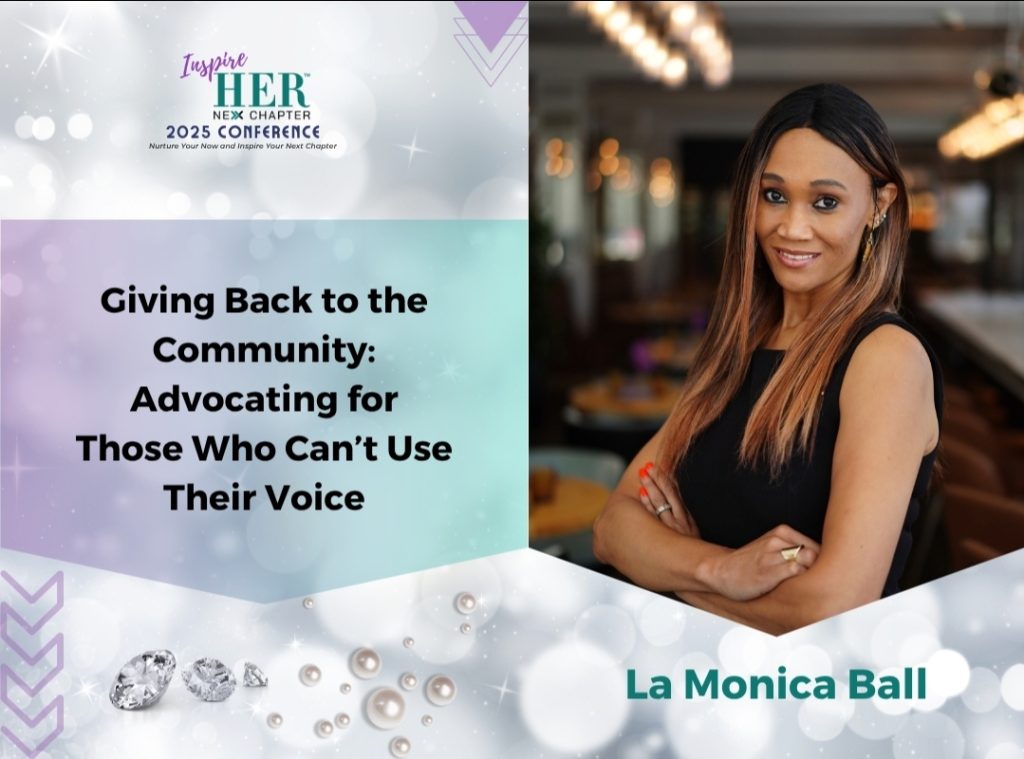Life and career coach and professional development instructor Christine Horstman, whose name you may have heard in Her Nexx Chapter circles, is the author of Deal with It, Doll! Coaching Yourself Through Crisis. Our recent Book Chat provided an opportunity for us to connect with our coaching friend and celebrate the milestone that writing this book was in her life. We sat down with Christine and learned the story behind her book among many other topics to help each of us to Deal with It, Doll.
“This was not the book I imagined, but that’s the beauty of writing,” said Christine. “What we think about, what we chew on, isn’t always crystallized at the time.” Then an opportunity presented itself. A woman she had met through HNC had started her own publishing house, and she asked if anyone wanted to explore a book about “coping.” As Christine had learned many lessons throughout the pandemic, she saw that as the backdrop of this book. Her own battles with several chronic illnesses had also been a part of her story, and as she considered the message of “coping” with these in mind, she saw that as a great starting point.
Her book is divided into two sections: Personal with chapter titles of Health, Self, Relationships and Parenting, and Professional which includes chapters on Education, Career, Leadership and Wealth. In addressing the Parenting chapter, Christine said, “We may not all be parents, but we were all children. So, this chapter might make you look at relationships with your parents, some that may need healing.”
Christine envisioned the readers of her book as female since the bulk of her practice deals with women. She said that’s what attracted her to HNC as an organization that builds each other up and is invested in the continued growth of women.
Here is a snippet of our Book Chat with the questions we asked Christine:
Is asking for help or support a sign of weakness or a sign of strength?
“I can’t see it as anything but a sign of strength. I believe we each know our own limits. Deep down we know what they are. In order to grow, I know to ask the right questions. I know how to surround myself with strengths. For example, as a new mom, I would ask my best friend or my mom for help. I ask for help. But people fear vulnerability, as that can be uncomfortable.”
In what ways can we tell when we’re in a crisis? What are the emotional signposts?
“Often, we do know we’re blocking ourselves. We are avoiding stuff because we haven’t seen a model of healthy coping skills. Sometimes it’s a response to trauma, and we don’t always have the tools. You can’t hear the whispers yet; you haven’t hit rock bottom. Healing happens when you begin to realize this. It’s also important to separate the emotional from the physical. Tension in the head or neck may be related to emotions, and it can be intertwined with the physical. We may also be experiencing a transition, something like divorce, illness, or even a natural transition like graduating from college. These can be triggers of things that aren’t healed, but these are also opportunities for growth and self-awareness.”
How do we know we’re at a point when we need more help?
“When we realize we are not going where we think we should be, or our emotional regulation is starting to be shot. When someone has goals in mind, the coach can be a catalyst. Sometimes, though, coaching isn’t all you need; sometimes there’s a need for deeper therapeutic help. There are ten thematic questions at the end of each chapter that are designed to prompt or provoke the reader with powerful messaging. There are also affirmations or mantras, and there is a space for journaling. It’s important to rewire our internal talk or messaging. Journaling has been a tool throughout my life, and this book as a whole can be a tool.”
Why was it important for you to write this book now?
“My 50th birthday was approaching, and I was feeling the pressure of this milestone, the narratives of society. The pandemic was a gift to have time and space, and when I hit 50, I sort of reached this point where I couldn’t deal with all the drama anymore. So, I unapologetically (by the way, the publishing house is called Unapologetic Voice House), put myself first. I was in a better space health-wise, and I recognized that this was my time. I began to write and tried to discipline myself to write a certain amount within a specific time, but that didn’t work all the time and I fought it. I realized how much music lifted me up, and I began doing creative activities. Then when I didn’t feel that, I stopped. When I began to write again, the words just flowed, and it helped increase my trust in myself.”
Christine’s journey through her chronic illness, a long COVID diagnosis while writing the book and the wisdom learned as a wife, mother, daughter, coach and friend will speak to your heart and encourage you through whatever crisis you may find yourself in. With her warm perspective, her clever humor and her ‘girlfriend talk’ spirit, you’re sure to be as engaged reading her book as if you were chatting with her in the same room.
Her Nexx Chapter invites you to join our free Community where women from around the world are connecting with each other’s stories, exploring different experiences, and transforming ideas.
The Future of Connection for Women








0 Comments